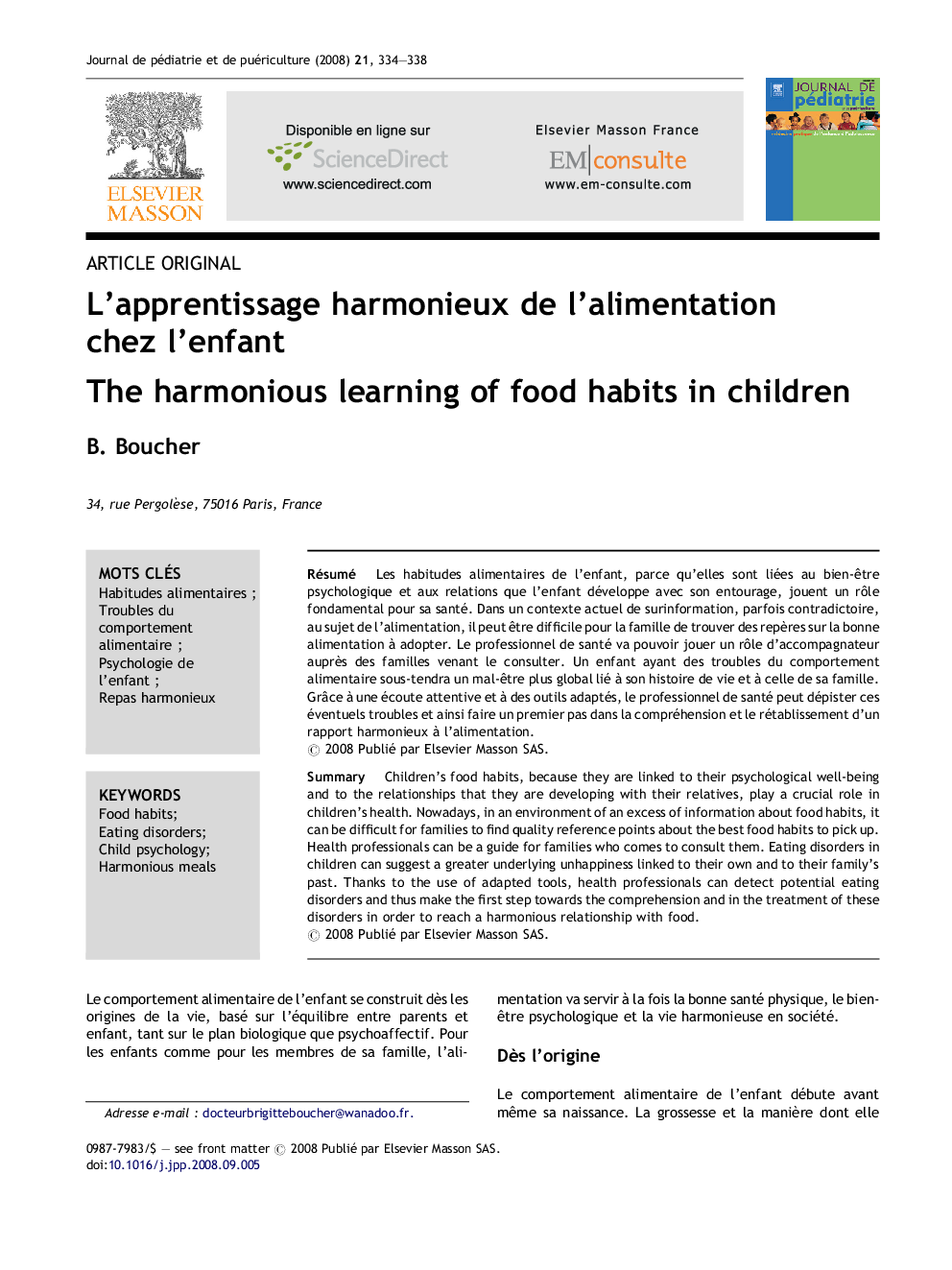| Article ID | Journal | Published Year | Pages | File Type |
|---|---|---|---|---|
| 4170320 | Journal de Pédiatrie et de Puériculture | 2008 | 5 Pages |
RésuméLes habitudes alimentaires de l’enfant, parce qu’elles sont liées au bien-être psychologique et aux relations que l’enfant développe avec son entourage, jouent un rôle fondamental pour sa santé. Dans un contexte actuel de surinformation, parfois contradictoire, au sujet de l’alimentation, il peut être difficile pour la famille de trouver des repères sur la bonne alimentation à adopter. Le professionnel de santé va pouvoir jouer un rôle d’accompagnateur auprès des familles venant le consulter. Un enfant ayant des troubles du comportement alimentaire sous-tendra un mal-être plus global lié à son histoire de vie et à celle de sa famille. Grâce à une écoute attentive et à des outils adaptés, le professionnel de santé peut dépister ces éventuels troubles et ainsi faire un premier pas dans la compréhension et le rétablissement d’un rapport harmonieux à l’alimentation.
SummaryChildren’s food habits, because they are linked to their psychological well-being and to the relationships that they are developing with their relatives, play a crucial role in children’s health. Nowadays, in an environment of an excess of information about food habits, it can be difficult for families to find quality reference points about the best food habits to pick up. Health professionals can be a guide for families who comes to consult them. Eating disorders in children can suggest a greater underlying unhappiness linked to their own and to their family’s past. Thanks to the use of adapted tools, health professionals can detect potential eating disorders and thus make the first step towards the comprehension and in the treatment of these disorders in order to reach a harmonious relationship with food.
